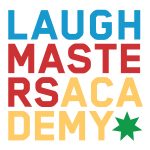I frequently have performers ask me for the hard truth, the tough note. “Be brutal” they might ask, or “tell me like it is” or “I haven’t got feedback on my work in a long time. Help!” or “People like my work, but I feel bored. What is wrong?!” It can be intellectually satisfying to deconstruct peoples work, as there’s always something that’s not quite right, or that someone might not like.
“There are a couple of olives in every martini. Just make sure we don’t have too many.”
A plucky student was quick to tell me that they love olives, but I think the point is that we can’t expect to get it right all the time, and sometimes it might even enhance the flavor. Let’s just admit that Olives are not evil. You’re not evil.
The best note I ever received on my Improv/life/everything came from a famous violinist:
“With every year of playing, you want to relax one more muscle. Why? Because the more tense you are, the less you can hear.” – Yo-yo Ma
I would go further to say that the less you hear, the less you can honor what is in front of you, and the more disconnected your work can become from what has come before. In my opinion this lack of flexibility will manifest itself in one broad way:
Your scenes/characters/choices tend to be the same.
You can experience this concept in many ways. If you are new to improv, you might observe that all your scenes involve you gagging, or maybe you get nervous every time you are on stage. If you have been performing for a long time, you might find you deal with specific people the same way every time. That is some tension limiting your movement.
The cruel joke is that some people might actually enjoy watching you gag away, and there might be some sicko (although I doubt it) who loves watching your stage fright, and there may be no one who watches you enough to know that you always respond to Simon Anthony McArthurson by taking high status and speaking philosophically about life. You might even work with a director or coach who loves your creative crutches enough to perpetuate a sort of artistic Munchausen by Proxy situation. But there’ll come a time when you notice, and you should be kind to yourself when you do.
Note that taken out of a specific context, none of these olives (to call back to Bill’s point) are inherently evil. There are mediums, styles and methods of performance that require these behaviors.
I know what you’re thinking. So what’s the point? Well here’s a few:
- Stop thinking of your opportunities to improve as something that is wrong with your performance – don’t beat yourself or others up based on where they are at in their journey of learning.
- Give yourself space where you can just play and improvise – don’t limit yourself to just Classes/Workshops.
- Take the opportunity to enjoy other types of art, this will inspire you in new ways and help you find new muscles.
- Look for one good thing about every performer you watch, look especially for things you haven’t done before.
- Compliment someone on something they do well. Be genuinely positive.
– DP
